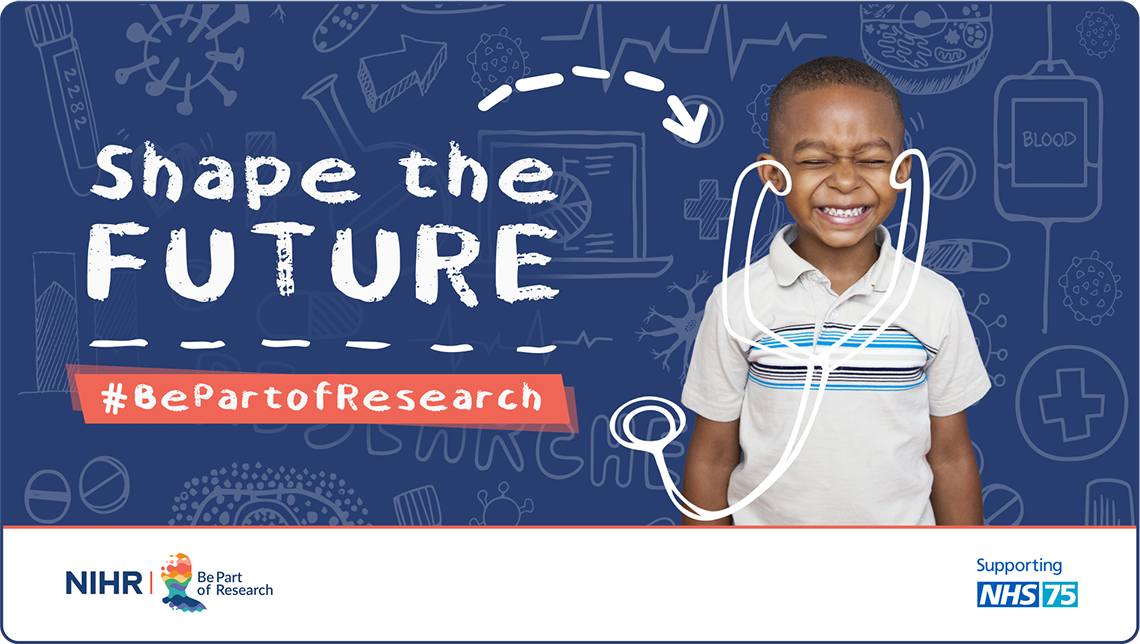Shape the Future - celebrating NHS 75

This year our NHS has its 75th birthday.
We’re celebrating how NIHR research contributes to the NHS, saving lives and money - and how research can shape the NHS of the future.
We'll look back at improvements in patient care and pioneering techniques made possible by research. We'll look at future exciting developments too.
Join the campaign to help shape the future of healthcare.
Register to take part in health and care research
For health and care research to help all of us, we need everyone to get involved.
Be one step closer to changing future treatments and care by registering your interest to take part in a wide range of health and social care research.
By creating your free health research account on our volunteer registry, you’ll then be matched to suitable research studies and sent information on how to take part.
Why is health and care research important?
In 2021/2022 almost 1.3 million people took part in over 4,600 health and social care research studies.
This public participation, from people just like you, has helped provide valuable knowledge to help people live healthier and better lives, now and in the future.
This research helps improve health and social care provided by the NHS and others. It also helps advance medicine to find new and better treatments for future generations. This treatment could be a medicine, a vaccine, surgery, radiotherapy, physical and psychological therapies or improve methods of diagnosing disease.
Find out more about how you can take part in health and care research.
How research is making a difference
Shorter radiotherapy treatment benefits women with early-stage breast cancer
Breast cancer patients in the UK can now receive fewer radiotherapy sessions following surgery after the FAST-Forward trial confirmed that a one-week course was as safe and effective as the standard three-week course.
Wider access to mindfulness therapy benefits patients with recurrent depression
NIHR research has delivered new insights into the availability and implementation of mindfulness-based cognitive therapy for patients with recurrent depression, leading to new guidance to support its wider provision by NHS services.






